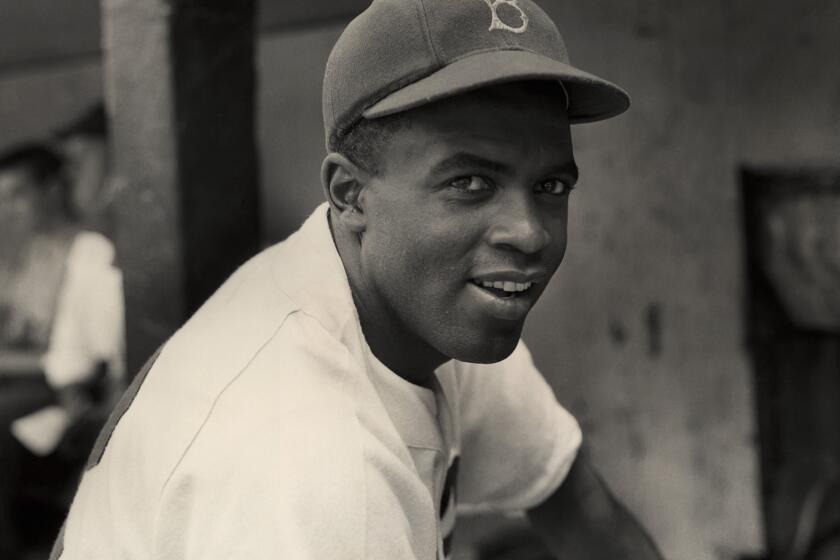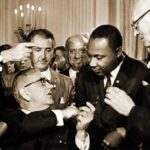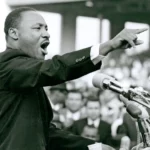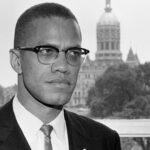Jackie Robinson: Breaking Barriers and Building Legacies
Jackie Robinson, a name synonymous with courage, perseverance, and breaking racial barriers, remains a pivotal figure in both American sports and civil rights history. His journey from a humble beginning to becoming the first African American to play Major League Baseball (MLB) in the modern era is a testament to his indomitable spirit and enduring legacy. This comprehensive biography delves into Robinson’s life, his groundbreaking achievements, his profound impact on society, and his memorable quotes.
Early Life and Background
Jack Roosevelt Robinson was born on January 31, 1919, in Cairo, Georgia, to a family of sharecroppers. His early life was marked by poverty and racial discrimination. The Robinson family moved to Pasadena, California, where Jackie grew up. He was a standout athlete at Pasadena Junior College and then at UCLA, where he became the university’s first athlete to win varsity letters in four sports: baseball, basketball, football, and track.
Military Service
Before his professional baseball career, Robinson served in the U.S. Army during World War II. He faced court-martial in 1944 for refusing to move to the back of a segregated bus, prefiguring the Rosa Parks incident by more than a decade. He was acquitted of the charges and received an honorable discharge.
Breaking Baseball’s Color Barrier
Robinson’s entry into Major League Baseball came when Branch Rickey, the Brooklyn Dodgers’ general manager, signed him in 1947. Facing virulent racism, Robinson exhibited tremendous courage and restraint, abiding by Rickey’s directive to “turn the other cheek” to racial antagonism. His debut on April 15, 1947, as the first black player in the MLB since the 1880s, marked a significant milestone in the Civil Rights Movement.
Career and Accomplishments
Jackie Robinson’s MLB career spanned ten seasons, all with the Brooklyn Dodgers. His achievements on the field were remarkable:
- Named the National League Rookie of the Year in 1947.
- Won the National League Most Valuable Player (MVP) Award in 1949.
- Led the Dodgers to six National League pennants and one World Series championship in 1955.
- Posted a career batting average of .311.
Beyond his athletic prowess, Robinson’s integration into MLB helped pave the way for other African American players and contributed significantly to the Civil Rights Movement.
Life After Baseball
After retiring from baseball in 1956, Robinson became an active and vocal supporter of the Civil Rights Movement, participating in marches and speaking out against racial injustice. He also had a successful career as a business executive and became involved in politics, using his platform to advocate for social change.
Death and Legacy
Jackie Robinson passed away on October 24, 1972, from heart problems and complications related to diabetes, but his legacy endures. Major League Baseball retired his uniform number, 42, across all teams in 1997, a testament to his enduring impact on the sport and society.
Famous Quotes by Jackie Robinson
- “A life is not important except in the impact it has on other lives.”
- “I’m not concerned with your liking or disliking me… All I ask is that you respect me as a human being.”
- “The right of every American to first-class citizenship is the most important issue of our time.”
Top 20 Questions About Jackie Robinson
- When and where was Jackie Robinson born?
- January 31, 1919, in Cairo, Georgia.
- What sports did Jackie Robinson play in college?
- Baseball, basketball, football, and track.
- Which MLB team did Jackie Robinson play for?
- The Brooklyn Dodgers.
- What was significant about April 15, 1947?
- Robinson broke MLB’s color barrier.
- Did Jackie Robinson serve in the military?
- Yes, during World War II.
- How did Robinson respond to racism and discrimination in baseball?
- With courage and restraint, as advised by Branch Rickey.
- What awards did Jackie Robinson win?
- Rookie of the Year (1947) and National League MVP (1949).
- Was Jackie Robinson inducted into the Hall of Fame?
- Yes, in 1962.
- Did Jackie Robinson have a family?
- Yes, he married Rachel Isum, and they had three children.
- What did Robinson do after retiring from baseball?
- He became a civil rights activist, business executive, and was involved in politics.
- When did Jackie Robinson die?
- October 24, 1972.
- Why is April 15 celebrated in MLB?
- It’s Jackie Robinson Day, commemorating his MLB debut.
- What number did Jackie Robinson wear, and why is it significant?
- Number 42, retired across all MLB teams in his honor.
- What challenges did Robinson face when he joined the MLB?
- Racial slurs, threats, and discrimination from fans and some fellow players.
- How did Jackie Robinson impact the Civil Rights Movement?
- His integration into MLB was a major milestone that helped pave the way for further racial integration in sports and American society.
- Which universities did Robinson attend?
- Pasadena Junior College and UCLA.
- What military rank did Jackie Robinson achieve?
- He was a second lieutenant.
- How is Jackie Robinson remembered today?
- As a civil rights pioneer, a baseball legend, and an American hero.
- Did Jackie Robinson write any books?
- Yes, he wrote an autobiography titled “I Never Had It Made.”
- What legacy did Jackie Robinson leave behind?
- A legacy of breaking racial barriers, advocating for civil rights, and demonstrating the power of sports as a platform for social change.
Jackie Robinson’s story is not just about baseball; it’s about challenging the status quo, fighting for equality, and inspiring countless individuals to pursue their dreams regardless of the obstacles. His courage, integrity, and determination serve as enduring lessons for all.





